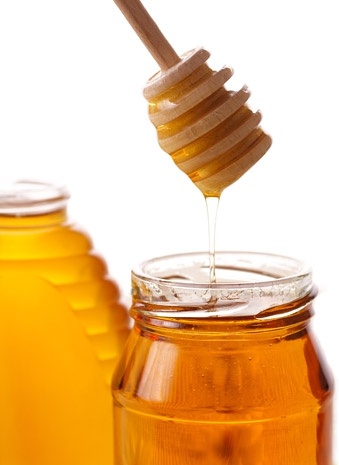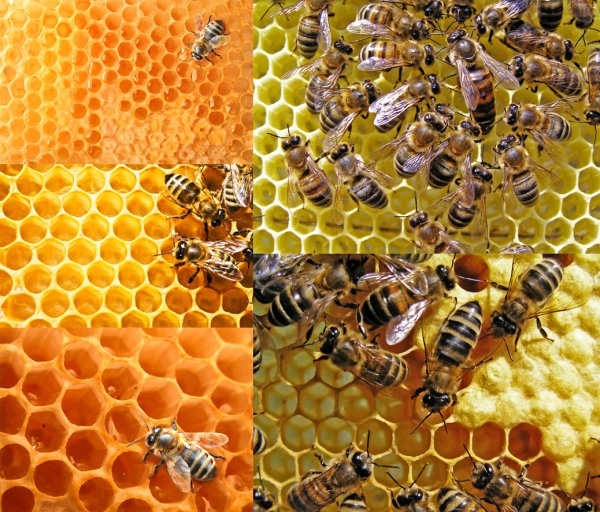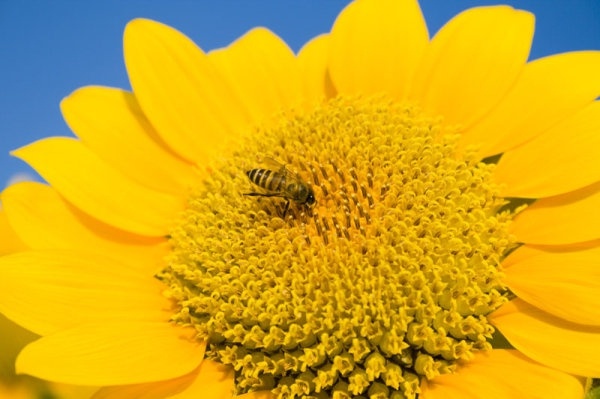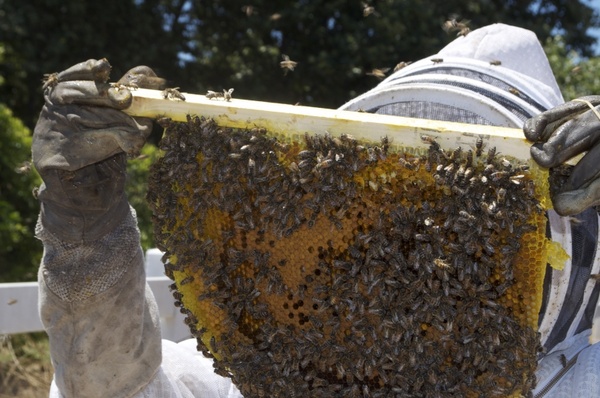 In the vegan community, honey can be a sticky subject. If you are against eating it, it can be the bane of your existence when it comes to scanning the ingredient labels of beverages, breads, or desserts. For other vegans, however, it’s not a concern in the slightest.
In the vegan community, honey can be a sticky subject. If you are against eating it, it can be the bane of your existence when it comes to scanning the ingredient labels of beverages, breads, or desserts. For other vegans, however, it’s not a concern in the slightest.As the vegan movement grew in popularity over the 2000s, there came a rising lackadaisical attitude towards honey. In the grand scheme of things, it fell into a “grey area,” being not quite as egregious as consuming milk, but not as acceptable as strictly vegan substitutes, like agave nectar. I have previously written about agave as an alternative to refined sugar. You can read it here: http://yaso-shan.blogspot.com/2013/08/stevia-great-sugar-alternative.html
By definition the term veganism is a way of living that aims to minimise animal exploitation and cruelty. Therefore, vegans avoid eating animal products like meat, eggs, and dairy, as well as foods that are made from them. However, many people wonder whether this extends to foods made from insects, such as honey.
The discussion therefore follows whether honey is vegan. Many vegans contend that honey is absolutely not vegan-friendly because it is, strictly speaking, an “animal product,” and because it harms bees by disrupting natural processes.
There are compelling arguments for both.
Why Honey SHOULD Be Considered Vegan-Friendly
The first point many pro-honey vegans make is that removing honey from your diet is far too restrictive to be realistic. As previously stated, honey appears in many products, and mixing all of them can get pretty prohibitive.
Bees are instrumental, if not critical in the production of many “vegan” foods, including “broccoli, canola, cherries, cucumbers, lettuce, peaches, pears, plums, sunflowers, and tomatoes” to name but a few. While you could argue that honey can be reasonably avoided, it is difficult to argue that vegans should avoid all of these products.

Moreover, extra restrictions could make omnivores reluctant (or even outright refuse) to try veganism in the first place. By loudly arguing against the consumption of honey, it could be a distinct turnoff for encouraging people to reduce the consumption of meat, dairy, or other animal products.
Unlike overt animal foods like meat, eggs, and dairy, foods from insects aren’t always grouped into the vegan category. In fact, some vegans who eat an otherwise entirely plant-based diet may opt to include honey in their diet.That said, the majority of vegans view honey as non-vegan and avoid eating it for several reasons:
- Honey results from the exploitation of bees; most vegans see no difference between bee farming and other forms of animal farming.
- To optimise profits, many commercial bee farmers employ practices that are unethical by vegan standards.These include clipping the wings of queen bees to prevent them from fleeing the hive, replacing harvested honey with nutritionally inferior sugar syrups, and killing entire colonies to prevent the spread of disease, instead of giving them medicine.
- Vegans opt to take a stand against these exploitative practices by avoiding honey and other bee products, including honeycomb, bee pollen, royal jelly, or propolis.
- Honey farming may harm bee health; many vegans avoid eating honey because commercial honey farming may also harm the health of bees.
- Honey’s main function is to provide bees with carbohydrates and other essential nutrients like amino acids, antioxidants, and natural antibiotics.
- Bees store honey and consume it over the winter months when honey production dwindles. It provides them with energy, helping them stay healthy and survive during cold weather.
- To be sold, honey is taken away from bees and often replaced by sucrose or high-fructose corn syrup (HFCS). These supplemental carbs are meant to prevent the bees from starving during the colder months and are sometimes given to bees in the spring to encourage colony growth and stimulate the flow of nectar. However, sucrose and HFCS do not provide bees the many beneficial nutrients found in honey. What’s more, there’s evidence that these sweeteners harm the bees’ immune systems and can cause genetic changes that reduce their defences against pesticides. Both of these effects can ultimately damage a beehive.
- Honey farming may contribute to declining bee populations; bees play an essential role in the ecosystem. They help transfer pollen and seeds between a wide variety of flowers. Without bees, many plants would be unable to reproduce, causing a dramatic drop in crop yields and plant diversity.
- Bee populations are unfortunately declining worldwide. Studies show that commercial beekeeping practices may contribute to part of this decline. Housing dense colonies in large hives and inadvertently interfering with the bees’ natural protection from the environment during routine colony inspections are part of the problem. Other common beekeeping practices, such as artificial insemination, manually replacing a hive’s queen, or even offering treatment against disease, can further interfere with natural selection and reduce the bees’ genetic diversity. Such practices are thought to lower a beehive’s ability to adapt and defend itself against the local environment, potentially leading to a decline in bee populations.
For some vegans the notion of animal welfare is equally important as not eating or using any animal products. It is therefore reasonable for them to argue that “I’m not harming any animals by eating honey.” But is that true?
 Those who argue that honey is not vegan-friendly contend that the consumption of honey actually harms bees. Honey is created by honey bees during periods of cold or poor weather and stored for future consumption. It contains essential nutrients that maintain the health and well-being of the hive. Being an essential source of sustenance, honey needs to be replaced after it is harvested.
Those who argue that honey is not vegan-friendly contend that the consumption of honey actually harms bees. Honey is created by honey bees during periods of cold or poor weather and stored for future consumption. It contains essential nutrients that maintain the health and well-being of the hive. Being an essential source of sustenance, honey needs to be replaced after it is harvested.Unfortunately, the sugar substitute that harvesters use to replace honey is devoid of the nutrients, vitamins, and fats that bees require to remain healthy. Furthermore, as bees scramble to replace the lost honey, the hive can exhaust itself.
There are other ethical considerations as well. Selective breeding, a process intended to maximise production and profits, has significantly narrowed the gene pool of the honey bee population. This makes the species susceptible to life-threatening diseases, which can be spread to other animals and pollinators that are required to continue the cycle of nature.
As we’ve seen with the unintended culling of bees throughout the past several years, the environmental impacts can be enormous.
Making the Decision: Should You Avoid Honey?
 Given these considerations, what is the best choice for you? Ultimately, what you choose to do is a deeply personal choice; you can’t be verbally coerced into refusing to eat honey. Avoiding all products that involve the exploitation of bees is a difficult task, so eating honey can be seen as a relatively minor transgression. However, because the consumption of honey causes harm to bees and the environment, many vegans choose to avoid it.
Given these considerations, what is the best choice for you? Ultimately, what you choose to do is a deeply personal choice; you can’t be verbally coerced into refusing to eat honey. Avoiding all products that involve the exploitation of bees is a difficult task, so eating honey can be seen as a relatively minor transgression. However, because the consumption of honey causes harm to bees and the environment, many vegans choose to avoid it.Vegan alternatives to honey
Several plant-based options can replace honey. The most common vegan alternatives are:
- Maple syrup: Made from the sap of the maple tree, maple syrup contains several vitamins and minerals and up to 24 protective antioxidants.
- Blackstrap molasses: A thick, dark-brown liquid obtained from boiling sugar cane juice three times. Blackstrap molasses is rich in iron and calcium.
- Coconut nectar: A syrup made from the sap and flowers of the coconut palm. It contains some nutrients, such as vitamin A and calcium
- Barley malt syrup: A sweetener made from sprouted barley. This syrup has a golden colour and flavor similar to that of blackstrap molasses.
- Brown rice syrup: Also known as rice or malt syrup, brown rice syrup is made by exposing brown rice to enzymes that break down the starch found in rice to produce a thick, dark-coloured syrup.
- Date syrup: A caramel-coloured sweetener made by extracting the liquid portion of cooked dates. You can also make it at home by blending boiled dates with water.
- Bee Free Honey: A branded sweetener made from apples, sugar, and fresh lemon juice. It’s advertised as a vegan alternative that looks and feels like honey.
Like honey, all of these vegan alternatives are high in sugar so it is best to consume them in moderation, as too much added sugar can harm your health. They can be available in a variety of flavours, textures, and colours.
In conclusion, it comes down to the different motives of being vegan. If it's a philosophical or ethical argument about exploitation without consent, then honey isn't vegan. But if the motivation is environmental, then is it vegan because beekeeping promotes pollination. However, the latter is very location-dependent. Beekeeping can be a bad or good depending on what plants the bees are pollinating. Vegans avoid eating honey to take a stand against bee exploitation and farming practices that are thought to harm bee health and reduce bee populations.
For more information visit:
https://www.vegansociety.com/go-vegan/honey-industry
https://www.peta.org/issues/animals-used-for-food/animals-used-food-factsheets/honey-factory-farmed-bees/
Ref: https://www.healthline.com/nutrition/is-honey-vegan#bottom-line
No comments:
Post a Comment